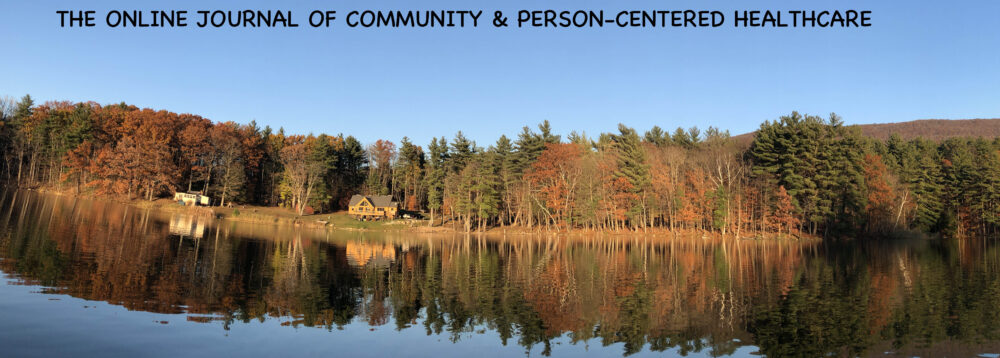by Ellen Ahlness*

Anti-racism and bias trainings are an important part of any health service and care provider’s professionalization; however, there are few standards that oversee the integration of diversity, equity, and inclusion-based resources into formal education programs, continued training programs, and professionalization opportunities.
It is integral for medical practitioners, researchers, and academics to oppose all forms of systemic bias, discrimination, and racism through endorsing policies and initiatives that promote nondiscrimination. This includes the integration of best practices in clinical and research settings. Even as institutions can fall short of providing effective or comprehensive diversity and equity training, individuals have tremendous leeway to professionalize in this area, yet many cite a lack of knowledge about existing resources that they feel prevents them from pursuing this avenue of professionalization.
What follows is a curated list of anti-racism readings and resources intended to facilitate self-education. There is power and the potential for change in listening to writers of color, understanding the historical contexts that have guided us from past to present, and following academic, clinical, and reflective work that engages with the forms of racism that exist today, and have been built on top of a long history of racism in medicine.
In the words of Ibram X. Kendi, “To be antiracist is to think nothing is behaviorally wrong or right — inferior or superior — with any of the racial groups. Whenever the antiracist sees individuals behaving positively or negatively, the antiracist sees exactly that: individuals behaving positively or negatively, not representatives of whole races. To be antiracist is to deracialize behavior, to remove the tattooed stereotype from every racialized body. Behavior is something humans do, not races do.”
This list is not intended to serve as an exhaustive list of anti-racism resources for individuals in the medical and health care service fields. Rather, it is a small collection of highly rated resources meant to start or continue individuals’ professionalization journeys. The readings are organized by theme and come in multiple formats: books, articles, website, and more.
The Resource List
Introduction to Bias and Systemic Racism
- Healthcare Disparities. MedEdPortal. Online course designed to increase awareness about racial and ethnic disparities. Also examines the use of patient-centered communication strategies to minimize disparities.
- How to Be an Antiracist. www.ibramxkendi.com. Reshapes the conversation about racial justice, pointing individuals to consider what an antiracist society looks like, and what roles they can play in their everyday lives to built it.
Medical Ethics and Medical Racism in History
- Medical Ethics and Health Equity: The Henrietta Lacks Story. MedEdPortal. Workshop and potential classroom activity that explores an infamous case in medical ethics and health equity.
- Myths about Physical Racial Differences were Used to Justify Slavery – and Are Still Believed by Doctors Today. The New York Times. Articulates the pervasiveness of health- body- and mental capacity- myths across the centuries, and their impact on contemporary medicine.
Dermatology
- Dermatology Has a Problem With Skin Color. The New York Times. Yet physicians are trained mostly to diagnose common conditions on white skin, even though they can manifest differently on dark skin. Considers the prevalence of bias in medicine and offers solutions for a general audience.
- Mind The Gap. www.blackandbrownskin.co.uk. A clinical handbook of signs and symptoms in black and brown skin created to highlight the lack of diversity in medical literature and education.
Medical Education
- Changing How Race is Portrayed in Medical Education. Academic Medicine. Proposes recommendations for guiding efforts to mitigate the negative effects of contemporary, inaccurate illustrations of race in medical education.
- Commentary: Racism and Bias in Health Professions Education: How Educators, Faculty Developers, and Researchers Can Make A Difference. Academic Medicine. Dramatic racial and ethnic health disparities persist in the United States while learner experiences across the medical education continuum are fraught with bias. The article considers potential research questions and suggestions for eliminating bias in health profession education.
- Social Contexts in Medicine: A Patient-Centered Curriculum Empowering Medical Students to Provide Contextual Care. MedEdPortal. Resources from a long-term medical education program to teach the complex social factors that affect health, illness, and patient participation in health care systems.
Continued Professionalization
The Racial Healing Handbook: Practical Activities to Help You Challenge Privilege, Confront Systemic Racism, and Engage in Collective Healing. Goodreads.Offers practical tools to navigate daily and past experiences of racism, challenge internalized messages and privileges in medical contexts,
*Ellen A. Ahlness, Editor and Researcher, University of Washington email: eaahlnessATgmail.com
